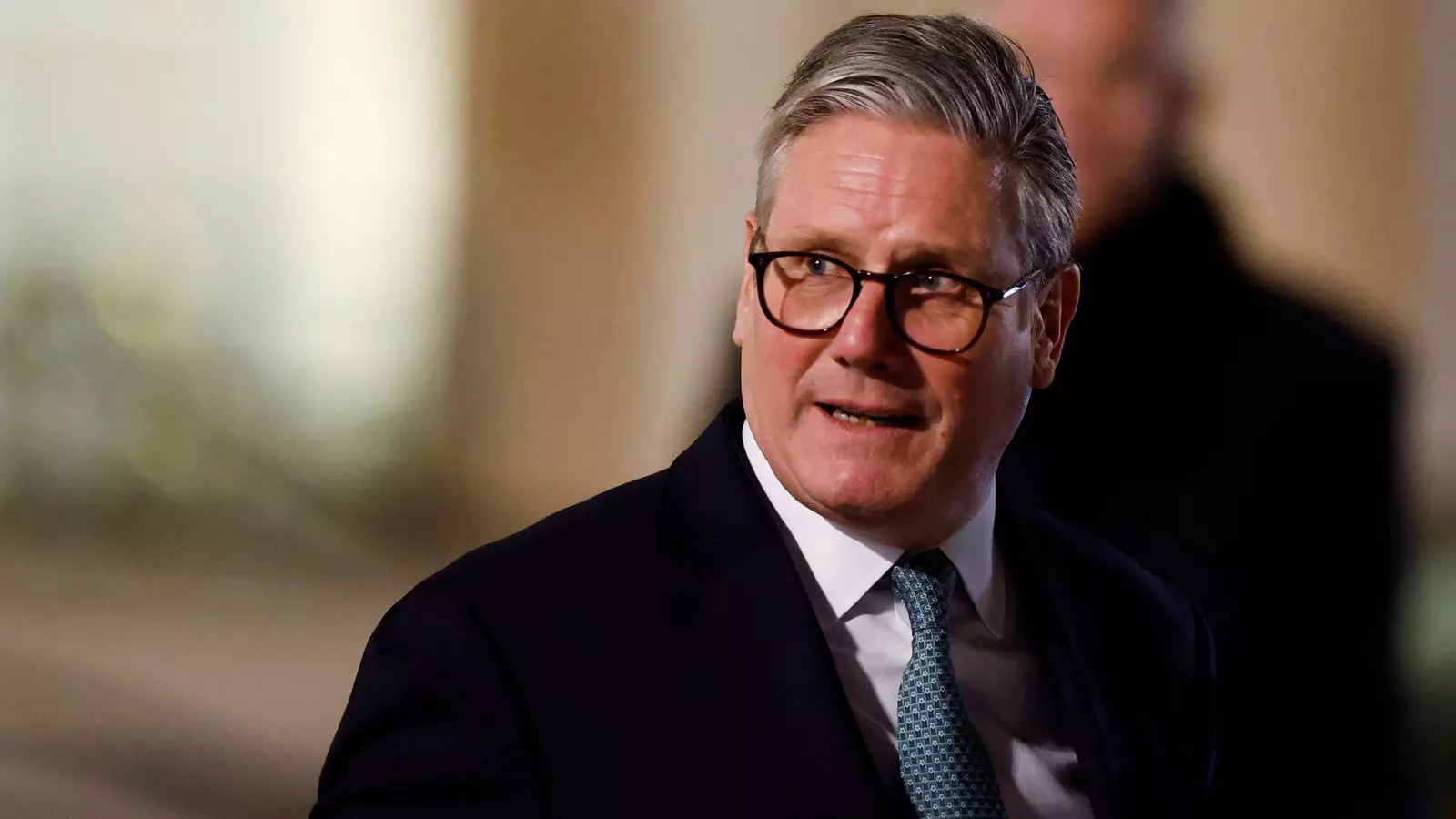In recent months, the discourse surrounding the ongoing conflict in Ukraine has dramatically intensified, particularly with the backdrop of evolving geopolitical relationships. Shortly before a high-stakes meeting between British Prime Minister Sir Keir Starmer and U.S. President Donald Trump, Starmer has voiced his concerns regarding the stability of Ukraine’s future. His remarks came in the wake of Trump’s recent controversial comments, where he labeled Ukraine’s President Volodymyr Zelenskyy as a “dictator.” Starmer’s emphatic plea for a security guarantee for Ukraine underscores a crucial point: a peace deal lacking robust assurances could potentially endanger the fragile international order.
Starmer warns that any attempt at a negotiated settlement that fails to include strong security guarantees would be catastrophic, not just for Ukraine, but for the global community. This perspective advocates for a strategy underpinned by strength, as it recognizes that Ukraine must have a significant role in shaping its fate. The potential for a Russian resurgence after peace negotiations pose a serious threat, which Starmer identifies as a profound danger requiring urgent attention.
In a candid article published in The Sun, Starmer elaborated that Kyiv’s security needs must be prioritized to ensure any accord remains viable. The U.S. involvement in guaranteeing this security is paramount, with expectations that it would encompass comprehensive air defense systems and a robust promise of support to NATO allies in the event of further Russian aggression. This stance highlights a critical aspect of international relations—collaboration and commitment among allied nations are essential to addressing the threats posed by autocratic regimes.
Discussions have emerged about back-channel negotiations taking place between U.S. and Russian representatives without the engagement of Ukrainian officials. This exclusion raises serious ethical and strategic questions about the legitimacy of any resultant agreements. As emphasized by UK Defence Secretary John Healey, it is unconscionable to proceed with discussions about Ukraine’s future while disregarding its agency and voice in the process. The potential for an “insecure peace” risks exacerbating ongoing tensions and could herald a return to hostilities.
While the international community grapples with these challenges, the need for a united front among NATO allies has never been more pressing. Sir Keir Starmer’s advocacy for elevated UK defense spending resonates with calls from various sectors, including opposition parties and defense officials. With a commitment to increase defense spending from 2.3% to 2.5% of gross domestic product (GDP), the UK aims to demonstrate its resolve in securing European stability while reinforcing its obligations to NATO.
Moreover, Starmer’s openness to deploying British troops in a multinational force in the aftermath of a peace agreement illustrates a significant shift towards a proactive defense posture. The potential involvement of UK forces in such initiatives should not be taken lightly; it represents a strategic commitment to European security, especially at a moment when the transatlantic alliance is facing mounting scrutiny regarding its preparedness and resolve.
As we approach the third anniversary of Russia’s full-scale invasion of Ukraine, the pressing need for strategic and united action among Western allies is more critical than ever. With Trump and Starmer about to engage in crucial dialogues, the responsibility now lies with both leaders to ensure that any future peace agreement is not merely a cessation of hostilities but a concrete framework providing lasting security.
By fostering a clear vision of solidarity centered on robust defense measures and inclusive negotiations, the UK, the U.S., and their allies can craft a path forward that not only respects the democratic choice of Ukraine but also lays the groundwork for sustainable peace in a region fraught with uncertainty. In the face of adversity, a commitment to collaboration and strength could yield dividends far beyond national borders, safeguarding the principles of democracy and stability across Europe and beyond.


Leave a Reply